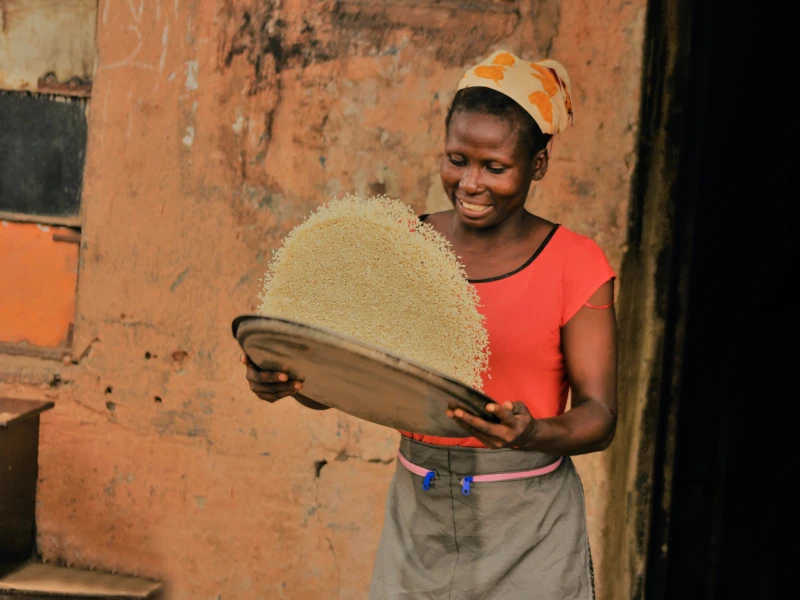In the modern world, having access to the internet has become essential. It gives people access to information, markets, and communities—all of which are essential for the growth of the economy and society. However, hundreds of millions of Africans lack even basic internet connection due to the continent’s widening digital gap, which worsens societal inequalities, economic inequality, and famine.
The African continent’s exclusionary digital divide disproportionately affects disadvantaged people, such as low-income communities, rural areas, and developing countries. According to the International Telecommunications Union (ITU), just 28% of Africans had internet connection in 2020, compared to 72% globally. Digital inclusion in Africa is highly concentrated in urban areas, with rural areas often lacking basic connectivity infrastructure.
Digital inclusion is critical for economic growth and competitiveness in today’s globalized and connected society. By bridging the digital gap, Africa will be able to capitalize on the huge potential provided by the digital economy. Individuals with an Internet connection may participate in online markets, conduct e-commerce, reach out to worldwide clients, and launch new business endeavors. Without internet access, disadvantaged groups, such as low-income communities, rural areas, and developing nations, fall behind. This exclusion maintains socio-economic inequalities, restricts access to information and services, and impedes democratic participation. Acting today to bridge the digital gap will result in a more inclusive society in Africa, where every individual has equal opportunity to grow, contribute, and participate in the digital world.
Access to the internet has become a basic human right, and it is time to bridge the digital divide in Africa. The promised land for every African, regardless of where they live or their resources, is to have access to information, markets, and community through easy and affordable internet access. However, there are still obstacles to overcome, such as the unaffordability of internet access, the lack of infrastructure, and low technological literacy.
Bridging The Divide: Brastorne’s Innovative Solutions Pave the Way for Digital Inclusion in Africa

Brastorne is playing a vital role in bridging the digital divide in Africa. They have developed innovative solutions such as Mpotsa, mAgri, and Vuka, which make it possible for people to access the power of the internet, even if they don’t have expensive smartphones or data plans.
Their affordable solutions provide people with access to information, markets, and communities. They have also developed a low bandwidth solution that makes feature phones smart, bypassing the need for high-speed networks or expensive infrastructure. Brastorne’s solutions are designed to bring digital inclusion to rural economies with an easy-to-use solution, promoting equitable access to digital technologies.
Mpotsa: Ask Me How?
Mpotsa, which translates to “ask me how?” in English, is a two-way telephone-based question/answer platform that aims to provide users with information on almost anything. It provides information to users by acting as a Google-like service that leverages the user-friendly technology of Voice/IVR.
Here are three key benefits of the Mposta service: 1.Increased Access to Health Information, 2.Increased Access to Job Opportunities, and 3.Increased Access to Communication for Youth.
mAgri: The Farmers’ Tool
Farmers use mAgri to access advisory services, wikipedia, weather/pest alerts, crop prices, and financial services, as well as trade, chat, and email in their native language.
Here are three key benefits of the mAgri service: 1.Increased access to communications for smallholder farmers, 2.Increased Yield (crop and livestock farmers), and 3.Increased revenue for women smallholder farmers
Vuka: Chat Function
Vuka facilitates and accelerates convenient communication through USSD, allowing users to chat, send in-person messages, or broadcast messages on both low-end phones and smartphones.
The Impact
Brastorne has brought the power of the internet to millions of people, and in the process improving their lives. Through Brastorne’s flagship product, Smallholder Farmers experience increased access to communications and Women Smallholder Farmers see increased Crop Yield and increased revenue. In 2021, 36,000 farmers gained access to information, markets, & communication in Botswana through mAgri. Furthermore, Brastorne users realized 85% monthly savings in costs of information and communication access compared to alternatives (data bundles, physical travel costs, etc.), which can cost $15 or more a month. Brastorne users in total have realized $3.4 million total annual savings across all 60,000 subscribers in 2021. These savings can now be put to use to improve their farm and feed their families, or buy much-needed personal items.
Brastorne’s information access service Mpotsa has brought the power of the internet to new users, giving them increased access to information, medical treatment, COVID vaccinations, and access to jobs. The service is literally a lifeline with an estimated 60% of Mpotsa subscribers who cannot otherwise afford digital information.
In conclusion, bridging the digital divide in Africa will be crucial for the continent’s economic and social progress. Promoting equal access to digital technology requires government programs and policies, the private sector’s participation, education and training, and regional collaboration. By bridging the digital gap and encouraging digital inclusion in Africa, Brastorne’s novel solutions have made tremendous progress.

